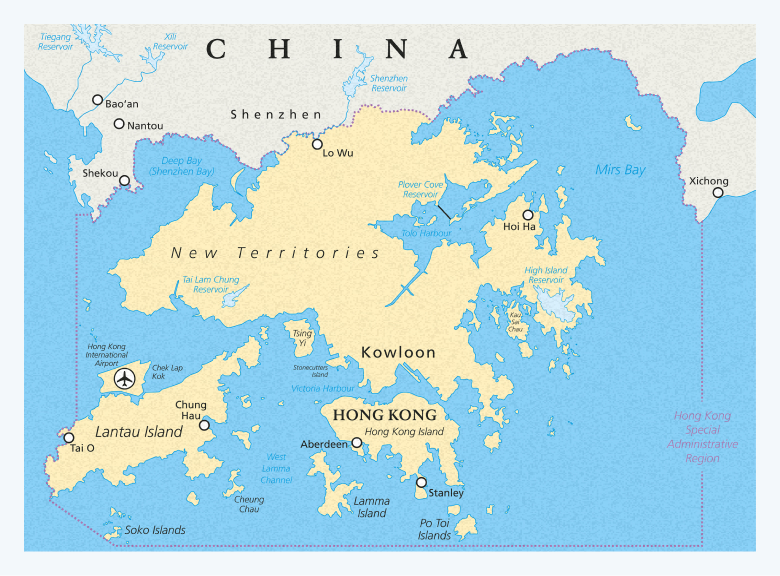
Market Spotlight:
Hong Kong

Factum Scale:
-
Hong Kong maintains its highly favorable business environment, ranking 3 out of 190 countries on The World Bank’s Ease of Doing Business Index.
-
The geopolitical tensions between China and various Western countries, particularly the US, have spilled over into Hong Kong. This has led to concerns about potential sanctions, export controls, and other measures that could impact businesses operating in the region.
-
With an average of 3.5 days to start a business, significantly shorter than the regional average of 59.4 days, the city excels in providing efficiency for entrepreneurs.
-
Online registration processes are streamlined, taking under 4 hours.
-
Hong Kong stands out globally for access to electricity (2nd) and enforcing contracts (2nd) in The World Bank Index.
Tariffs & Regulations
Factum Scale:
-
Hong Kong maintains a simple and transparent regulatory framework, with no applied tariffs on imports.
-
It actively promotes free trade and has signed various free trade agreements, ensuring minimal barriers to entry for international businesses.
-
The government offers investment incentives, including tax exemptions for certain industries, contributing to a business-friendly environment.
-
Intellectual property rights are rigorously protected, enhancing the confidence of investors.
Fluency in English
Factum Scale:
-
As a former British colony, English is widely spoken and is one of the official languages of Hong Kong.
-
A majority of the population, especially in business hubs like Central Hong Kong, are fluent in English.
-
The language is extensively used in international trade, legal documents, and in education.
-
Hong Kong consistently scores moderately well on the EF English Proficiency Index, and the government actively promotes bilingualism in education, ensuring a highly proficient workforce.
Society, Culture, and Business Etiquette
Factum Scale:
-
Hong Kong, a vibrant and cosmopolitan location, values professionalism and business etiquette.
-
Greetings are generally formal with handshakes, and titles are commonly used.
-
Business negotiations often involve building a relationship of trust and understanding.
Economic Stability
Factum Scale:
-
Hong Kong boasts a robust and resilient economy with a GDP of $366 billion, despite a turbulent rebound from the COVID pandemic.
-
Hong Kong’s autonomy and civil liberties, which were guaranteed under the “one country, two systems” principle, have been increasingly eroded. The implementation of the National Security Law in 2020 has raised concerns about the erosion of Hong Kong’s autonomy and its implications for businesses operating there.
-
Key sectors include finance, trade, logistics, and professional services.
-
Despite external challenges, Hong Kong maintains economic stability, and the GDP is expected to continue its growth from 2023.
-
Its strategic location as an international financial hub provides easy access to global markets. However, in more recent times, Hong Kong has been one of the worst-performing major stock markets in the past quarter century.
Labor
Factum Scale:
-
Hong Kong’s labor force of 3.8 million is well-educated, skilled, but the advanced education rate has dropped to 75%.
-
The city has an unemployment rate of roughly 3%.
-
Over 50% of the population is under 35 years old, contributing to a dynamic workforce.
-
Hong Kong emphasizes high-skilled industries such as finance, technology, and professional services. Competitive salaries are offered to attract top talent in sectors including finance, technology, and legal services.
Business Structures
-
Hong Kong offers a variety of business structures, including locally incorporated companies, regional headquarters, branches, and representative offices.
-
Partnerships, sole proprietorships, and joint ventures are also popular. The government supports foreign investment through programs like the InvestHK initiative, facilitating market entry and collaboration with local partners.
Business Landscape
-
Hong Kong’s private sector is dynamic, with a large number of SMEs representing diverse industries.
-
Government-linked enterprises are limited, creating a competitive and entrepreneurial landscape.
-
However, the regulatory environment in Hong Kong is becoming more closely aligned with mainland China, which may result in stricter regulations and compliance requirements for businesses. This could lead to increased operational costs and administrative burdens.
-
Key sectors include finance, trade, logistics, technology, and professional services.
-
Many global corporations choose Hong Kong as their regional headquarters due to its strategic location and business-friendly policies.


